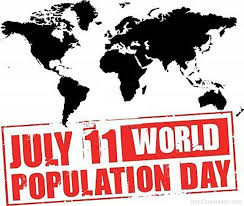Your basket is currently empty!
1302: Battle of the Golden Spurs

On July 11th, 1302, the Battle of the Golden Spurs (Guldensporenslag) unfolded near Kortrijk, Flanders, marking a pivotal moment in medieval warfare. In this remarkable engagement, a determined Flemish militia, primarily composed of urban craftsmen and peasant foot soldiers, achieved a stunning victory. They decisively defeated a heavily armed and reputedly invincible French chivalry, showcasing the power of organized infantry against mounted knights. This battle fundamentally challenged the prevailing military doctrines of the era, proving that well-trained commoners could overcome elite noble forces. The name of the battle derives from the hundreds of golden spurs collected from the fallen French knights on the battlefield. It stands as a significant event in Flemish national identity and a symbol of popular resistance against foreign domination. The outcome had lasting repercussions for the political landscape of the Low Countries and the prestige of the French crown. This victory remains a powerful testament to the effectiveness of strategic positioning and collective resolve in the face of a superior, but less adaptable, adversary.
1804: Duel Between Aaron Burr and Alexander Hamilton

One of the most infamous and consequential duels in American history transpired on July 11th, 1804, in Weehawken, New Jersey. The participants were Aaron Burr, the sitting Vice President of the United States, and Alexander Hamilton, a revered Founding Father and former Secretary of the Treasury. This fatal encounter was the culmination of years of bitter political rivalry and deeply personal animosity between the two prominent figures. Hamilton, despite his stated intention to fire his pistol into the air, was struck by Burr’s shot and mortally wounded. He tragically succumbed to his injuries the following day, sending shockwaves through the nascent American republic. The duel effectively ended Burr’s political career and left an indelible stain on his legacy. This dramatic event remains a potent symbol of the fierce political passions that characterized early American politics and the unforgiving nature of personal honor codes. It underscores how personal grievances could tragically intersect with national leadership, altering the course of history.
1859: Big Ben’s Great Bell Rings for the First Time

On July 11th, 1859, a momentous sound echoed across London as the Great Bell in the Elizabeth Tower of the Palace of Westminster rang for the very first time. This colossal bell, which would soon become affectionately known worldwide as Big Ben, quickly established itself as a quintessential symbol of the United Kingdom and its bustling capital. Weighing over 13 tons, its powerful chimes have since marked the passing of time for generations, becoming an integral part of British life. The precise engineering and careful construction involved in its creation were a testament to Victorian ingenuity. Its distinctive and deep resonant tone is instantly recognizable and has been featured in countless films, television shows, and news broadcasts. Big Ben’s enduring presence on the London skyline continues to evoke a sense of tradition, reliability, and national pride. The bell’s inaugural peal marked the completion of a major architectural and engineering feat, cementing its place as a global icon.
1960: Harper Lee’s “To Kill a Mockingbird” is Published

The literary world was forever changed on July 11th, 1960, with the initial publication of Harper Lee’s timeless and profound novel, “To Kill a Mockingbird.” This masterwork swiftly captivated readers and critics alike, earning immediate and widespread acclaim for its poignant narrative and powerful social commentary. The novel bravely confronts pervasive themes of racial injustice, prejudice, and moral integrity within the context of the American South during the Great Depression. Its unforgettable characters, particularly the principled lawyer Atticus Finch and his observant daughter Scout, have become cultural touchstones. The book’s nuanced exploration of empathy and the struggle for justice resonated deeply, contributing to its enduring relevance. “To Kill a Mockingbird” justly earned the Pulitzer Prize for Fiction in 1961, solidifying its place in the literary canon. It continues to be a cornerstone of high school curricula and a source of profound discussion, inspiring countless readers to reflect on societal inequalities and the importance of standing up for what is right.
1962: First Transatlantic Satellite Television Transmission

A new era of global communication dawned on July 11th, 1962, with the successful first transatlantic satellite television transmission. This groundbreaking achievement was made possible by the Telstar 1 satellite, launched just a day earlier, which revolutionized the way information and entertainment could cross oceans. The initial broadcast featured live images of the American flag and a brief message from President John F. Kennedy, captivating audiences on both sides of the Atlantic. This event dramatically demonstrated the potential for instant, real-time communication across vast distances. It laid the foundation for the interconnected world we inhabit today, making international news, sports, and cultural events instantly accessible. Telstar 1 ushered in the age of global television, fundamentally altering journalism, diplomacy, and cultural exchange. This technological marvel was a monumental step towards breaking down geographical barriers and fostering a more globally aware populace.
1987: The “Day of Five Billion”

On July 11th, 1987, the United Nations designated the day as the “Day of Five Billion,” marking the approximate date when the world’s population reached that significant milestone. This symbolic designation aimed to raise global awareness about the accelerating growth of the human population and the associated challenges and opportunities. The rapid increase in population brought to the forefront discussions about resource management, environmental sustainability, economic development, and social equity. It prompted international organizations and governments to intensify efforts in areas such as family planning, education, and healthcare. While a numerical marker, the “Day of Five Billion” served as a powerful reminder of humanity’s collective impact on the planet and its shared future. It underscored the importance of sustainable practices and responsible governance in managing the needs of a growing global community.
Want to dive deeper into ancient warfare? Don’t miss our articles on Timeline Stories.
